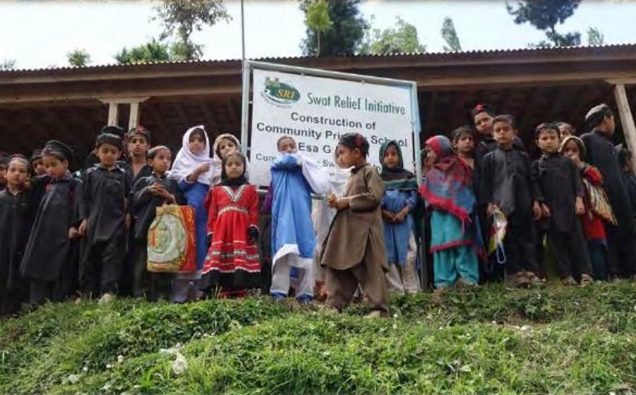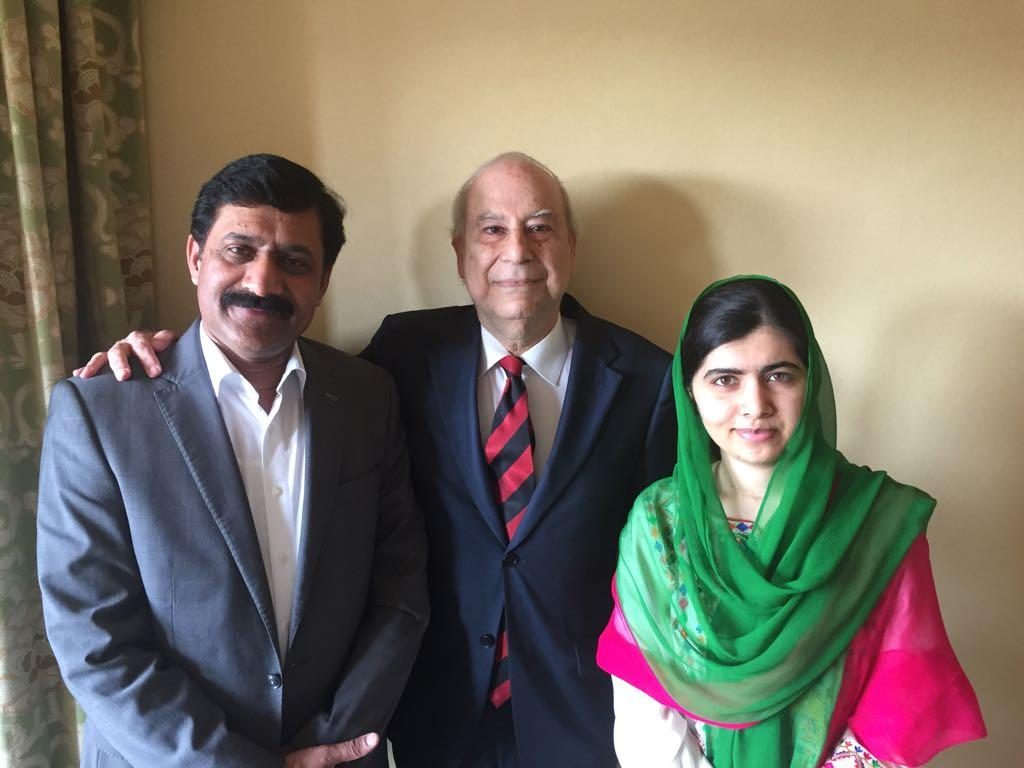
Proverbs are not just about wisdom and lessons drawn from the experiences of people. They are much more than just witty sayings. They represent the culture and ethos of a people, community, and nation.
That is the message that comes from a book of Pakhtun proverbs, compiled by Dr. Akbar Ahmed, an acclaimed Pakistani-American writer.
Dr. Ahmed, who heads the Ibn Khaldun Chair of Islamic Studies at the American University, is deeply conscious of the link between the traditional wisdom and cultures.
So, his book is an attempt at introducing a deeper sense of the Pakhtun culture. The book –Mataloona – will hit the market next month. Originally written in the 1970s, the collection of Pakhtun sayings is now being published by Oxford University Press.
It brings together proverbs on life, traditions, aspirations, love of the land, and the history of the tribal Pakhtuns in Pakistan. The proverbs and saying have been transferred generation after generation among the Pakhtun communities.
I am honored to announce that my newest publication, Mataloona and Mizh, will be available next month. Published by Oxford University Press, this volume consists of two books. Mataloona is a rare collection of translated Pukhtun proverbs and sayings which capture the beauty and pic.twitter.com/3aAVqpPkOV
— Akbar Ahmed (@AskAkbar) September 15, 2020
Hailing from the Pakhtun lands of Pakistan, Professor Ahmed has compiled the book from his experience of the centuries-old and “lively Pashtun culture” that takes pride in its ethnicity and traditions.
“I will claim no royalties. It’s a labor of love. I want this compilation to reach educational institutions so that young people are able to learn about the culture and the people,” says Dr. Ahmed, who is a prolific writer having produced dozens of works through his anthropological research.
The proverbs tell a lot about how people see life. For example, look at this proverb:
ھر چا تہ خپل وطن کشمیر دے
East, West, home’s best.
To everyone his own country is Kashmir.
As can be seen from the translation above, the book is a novel effort in that it explains proverbs to a much wider readership in the English language through carefully chosen sayings with comparable meanings in vogue in the English-speaking world.
The author of The Thistle and the Drone – a book in which he criticized former President Obama for launching a controversial drone campaign in the tribal areas along the Pakistan-Afghanistan border without bothering to understand the culture and the conflict during the Afghan war – is plain and simple in his elaboration of proverbs. The conflict and militancy in Afghanistan and Pakistani tribal areas – which are now part of the Pakhtunkhwa province – brought much misery to the local people and Dr. Ahmed says it is time that people begin life with renewed zeal and spirit to progress.
Far from indulging readers in polemics, Dr. Ahmed just wants to convey the essence of the Pakhtun culture, who have had many glorious chapters in their history from chivalry to literature to producing some of the greatest actors like Dileep Kumar, Nobel Peace Laureate Malala Yousafzai, and many sports heroes, academics and political leaders. The Pakhtuns have thrived in many fields of national life in Pakistan.
For instance, Dr. Ahmed mentions how great Pakhtun poets like Rahman Baba, Abdul Hamid, and Khushal Khan Khattak gave the people some of the most popular proverbs. At the same time, he invites the Pakhtun scholars and students to write about their contributions.

Shahid Afridi, a mercurial Pakistani cricket all-rounder from Pakhtunkhwa, Image: Harrias ./ Creativecommons.org
“The Pakhtuns make up the largest ethnic population in the region. I want people to take pride in their history and culture and write about it and share with the world what they represent with their achievements,” Akbar Ahmed, who has also served as Pakistan’s High Commissioner in London, says.
In the book, he recalls how a proverb won over an understanding from the local tribal people during his posting as a political agent of the federal government in Waziristan. During a delicate phase of negotiations with a jirga, Ahmed says he told them that his own precarious situation was proverbial like ‘on this side the staff, on that side the panther’.
Mataloona is being published with another book Mizh which is a monograph on the Mahsud tribe, and was written by Sir Evelyn Howell with a foreword written by Dr. Ahmed.
“I hope these books will help develop an understanding of the Pukhtun people and their way of life.”

















